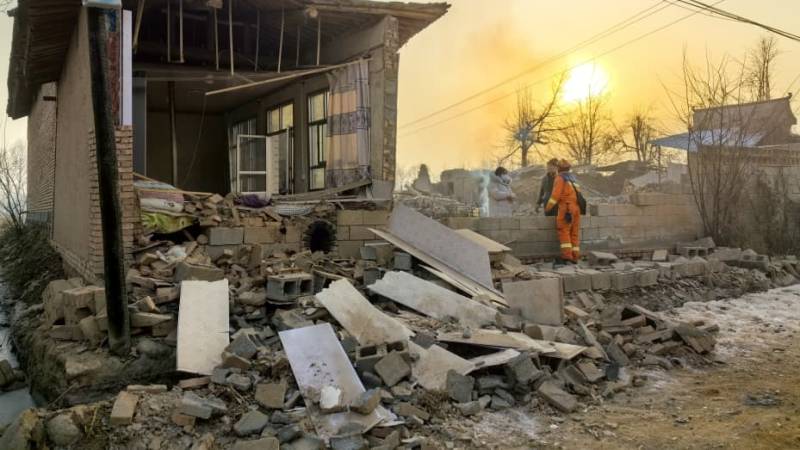
Rescue efforts in China's north-western Gansu province are drawing to a close, with authorities announcing the recovery of at least 131 bodies following a devastating 6.2 magnitude earthquake that struck the region on the night of December 18. Nearly 1,000 individuals sustained injuries in the disaster, and authorities are now shifting their focus to treating the wounded and assisting those who lost their homes.
Temperatures plummeted to -13°C (8.7°F) later in the week, compounding challenges for the rescue workers operating in sub-zero conditions. The frigid weather is part of a broader cold snap affecting northern China, with numerous cities reporting record-low temperatures.
Two individuals still remain missing in the neighboring Qinghai province to the south of Gansu. In Jishishan county, the worst-hit area in Gansu, more than 5,000 buildings have been reported as damaged, leaving communities devastated.
Images from the region depict entire villages split by the earthquake, collapsed buildings, and houses, as well as residents huddling over makeshift fires at evacuation camps. Survivors describe the tremors as feeling like "being tossed by surging waves," prompting a swift evacuation from apartments.
Monday's earthquake is reported as China's deadliest since 2014 when over 600 people lost their lives in a quake in the south-western Yunnan province.
Chinese President Xi Jinping has mobilized thousands of firefighters, soldiers, policemen, and medical personnel to the affected region. Gansu, a remote and ethnically diverse province lying between the Tibetan and Loess plateaus and bordering Mongolia, is among China's poorest areas.
The earthquake's epicenter was in Linxia Hui Autonomous Prefecture, home to various Chinese Muslim groups, including the Hui, Bonan, Dongxiang, and Salar people. Chinese authorities reported a magnitude of 6.2 on the Richter scale, while the US Geological Survey recorded a magnitude of 5.9 with a depth of 10 km (6 miles). Numerous smaller aftershocks followed the initial quake, and officials have warned of possible tremors with a magnitude exceeding 5.0 in the coming days.
Wang Yi, chief commander of the Blue-Sky Rescue Team, China's largest non-governmental humanitarian organization, stated that rescuers anticipate the casualty count to rise as they continue their efforts. President Xi has emphasized the importance of all-out search and rescue operations, prompt medical treatment, and minimizing casualties.
China, situated in a seismically active region where multiple tectonic plates converge, is prone to earthquakes. The 2010 earthquake in Yushu, Qinghai province, adjacent to Gansu, claimed almost 2,700 lives, while the devastating 2008 earthquake in Sichuan province resulted in the loss of 87,000 lives.

